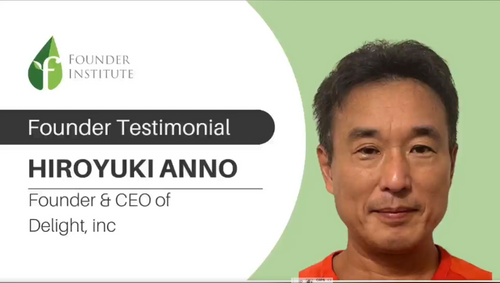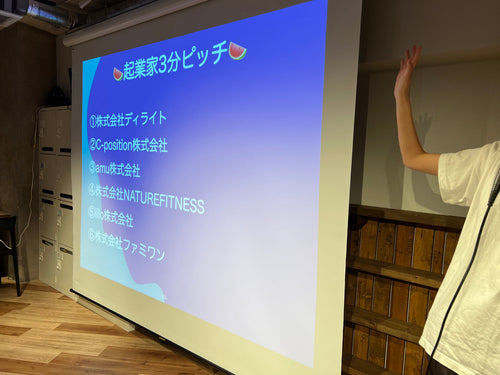Opportunities and Risks in the Japanese Market: A Japanese Founder Abroad’s Perspective

As a Japanese founder living abroad, I have had the privilege—and the challenge—of observing the Japanese market from both an insider and an outsider’s perspective. Having been born in Yamaguchi, raised in Hiroshima, and educated at one of Japan’s top universities, Keio, I spent my early career at Itochu Corporation, a company revered for its global stature and intricate business operations. Over the next two decades, I immersed myself in the world of sports business, negotiating international contracts and scouting talent across continents. Today, as the founder of an AI telephone bot startup based in Singapore—with our company incorporated in Delaware and recognized as one of the fastest-growing startups globally—I bring an international mindset to evaluate the unique opportunities and challenges of the Japanese market.
In this article, I aim to share my insights on the Japanese market’s potential and its inherent risks from the perspective of a founder who has navigated both the traditional corporate world and the dynamic startup ecosystem. My reflections are based on years of firsthand experience in diverse sectors, including international sports, event management, and, more recently, cutting-edge AI technology.
1. A Glimpse into My Journey
Before delving into the opportunities and risks of the Japanese market, allow me to briefly introduce myself. I was born in Yamaguchi Prefecture and moved to Hiroshima at the age of three due to my parents’ work commitments. I attended public schools in Hiroshima until high school and later moved to Tokyo for university. At Keio University’s Faculty of Science and Technology, I majored in artificial intelligence, with a focus on neural networks, graduating in 1994.
After university, I joined Itochu Corporation—a conglomerate known worldwide for its influence and longevity—where I contributed to major projects such as Y2K preparations, a critical issue that involved updating legacy systems across industries. Although few Japanese university graduates venture into entrepreneurship early on, I eventually transitioned from the corporate world into sports business. Over 20 years, I managed international player transfers, negotiated contracts between American and Japanese sports teams, and arranged scouting for talent in diverse markets including Cuba, Italy, and Brazil.
Today, I lead an AI telephone bot startup, now based in Singapore, with our headquarters registered in Delaware. We have received venture capital funding and participated in a pre-seed accelerator program in Silicon Valley, ranking among the top 50 fastest-growing companies among 7,000 global accelerator alumni. I recently spent a month in Austin, Texas, further solidifying my international business experience.
This eclectic journey has equipped me with a unique perspective on the Japanese market—one that appreciates its strengths while candidly acknowledging its challenges.
2. The Opportunities in the Japanese Market
2.1 A Large and Concentrated Market
One of Japan’s undeniable strengths is its sizable and concentrated market. Tokyo, as the economic heart of Japan, offers a dense population of consumers with significant purchasing power. In many ways, Japan’s centralized business culture is advantageous. With most major corporations headquartered in Tokyo, business decision-making is streamlined, and market trends can quickly take hold. For instance, a product or service that gains traction in Tokyo often finds it easier to expand throughout the country due to the interconnected nature of the market.
2.2 Diverse Industries and Innovative Potential
Japan is renowned for its rich tapestry of industries. From cutting-edge manufacturing and advanced robotics to world-class entertainment (think anime and video games), Japan possesses a diverse economic base. This diversity provides ample opportunities for startups and established companies alike to tap into various sectors:
- Technology and Innovation: Japan’s history of technological excellence remains a compelling draw for entrepreneurs. With strong support for R&D and public-private partnerships, there is significant potential for innovation.
- Sports and Entertainment: The country’s robust professional sports scene—encompassing baseball, soccer, basketball, volleyball, and rugby—presents opportunities not only for sports management and media but also for associated industries such as healthcare and stadium management.
- Manufacturing and Materials: Japan’s reputation in precision manufacturing and material science creates a fertile ground for partnerships and technological advancements.
2.3 Public Support and Safety
Japan is known for its high standards of public safety, efficient infrastructure, and reliable public services. For entrepreneurs and businesses, this creates an environment of stability and predictability. Additionally, various government grants, subsidies, and support programs for startups and technological innovation make Japan an attractive market for investment.
2.4 Seasonal Promotion and Marketing Cycles
The distinct four seasons in Japan offer unique opportunities for creative marketing and promotion. Seasonal campaigns are an integral part of Japanese consumer culture, allowing businesses to tailor their offerings and promotions to specific times of the year. This cyclical nature of marketing can help in building brand loyalty through recurring engagement and targeted campaigns.
3. The Risks and Challenges in the Japanese Market
3.1 Dominance of Large Corporations
One of the most significant challenges for startups in Japan is the dominance of large, established corporations. Japanese conglomerates have an overwhelming presence in many sectors, and their influence can make it difficult for startups to gain a foothold. Moreover, there is a risk of intellectual property theft or idea appropriation by these large players, as there have been instances where innovative startup ideas were later co-opted by established companies. This environment demands careful navigation and robust legal protections.
3.2 Market Saturation and Regional Disparities
While Tokyo provides a concentrated market with ample opportunities, there is a notable disparity between the capital and the rest of Japan. Many businesses succeed by concentrating their efforts in Tokyo, but expanding into regional markets can be challenging due to differences in consumer behavior and local culture. Startups must design strategies that accommodate these disparities while leveraging the centralized nature of the market.
3.3 Language and Cultural Barriers for International Entrepreneurs
For foreign entrepreneurs, including Japanese founders living abroad, entering the Japanese market poses additional challenges:
- Language Proficiency: Despite Japan’s global outlook, a significant portion of the population may not be fluent in English. This can limit communication and create barriers to market entry.
- Business Culture: Japanese business practices and decision-making processes can be markedly different from those in Western countries. Building relationships often requires personal interactions and long-term commitments, which might be at odds with the fast-paced, results-driven approaches common elsewhere.
- International Exposure: While Tokyo is globally connected, regional areas may lack the international exposure that foreign entrepreneurs are accustomed to, posing challenges in scaling and adaptation.
3.4 Regulatory and Bureaucratic Hurdles
Japan’s regulatory environment is known for its strict compliance standards and extensive bureaucracy. While this ensures stability and consumer protection, it can also slow down business operations, especially for startups seeking quick market entry. Navigating these regulatory waters requires both patience and a deep understanding of local laws and practices.
4. Insights from My Experience
Drawing from my diverse career—from my early days at Itochu Corporation, where I helped navigate the Y2K challenge, to my 20-year stint in sports business negotiating international contracts, and now as the founder of an AI telephone bot startup—I have seen firsthand both the promise and the pitfalls of doing business in Japan.
Lessons from Corporate Life and Sports Business
Working at a major conglomerate taught me the importance of meticulous planning and long-term relationship building. In the sports business, I learned the value of flexibility, international collaboration, and understanding cultural nuances. These experiences have shaped my view of the Japanese market as one that is immensely promising but requires a nuanced, patient approach.
The Global Perspective
Living abroad has allowed me to adopt a global mindset. I have seen how markets in the United States, Europe, and Asia operate, each with its own unique strengths and weaknesses. For instance, while the U.S. market values rapid innovation and agility, Japan offers unparalleled stability, a highly educated workforce, and a culture that values precision and quality. However, the same attributes that make Japan attractive can also pose challenges, such as resistance to disruptive innovation and the overshadowing power of established corporations.
The Importance of Cultural Adaptation
For any entrepreneur, especially one operating from abroad, understanding and adapting to local cultural norms is critical. In Japan, trust is built through personal relationships and consistent, reliable performance. While digital technologies and innovative approaches are welcomed, they must be integrated with a deep respect for traditional practices and long-established business protocols. This balance is key to unlocking the full potential of the Japanese market.
5. Strategic Recommendations for Success in Japan
Based on my experiences and insights, here are several strategies for foreign entrepreneurs and startups looking to tap into the Japanese market:
5.1 Leverage Tokyo’s Centralized Market
-
Focus on Tokyo Initially:
Given Tokyo’s centralized business ecosystem, it is often the best starting point. Concentrate your efforts in the capital to build a strong brand presence, then gradually expand to regional markets. -
Build Local Partnerships:
Collaborate with local companies and business leaders who understand the nuances of the market. This can help bridge cultural gaps and provide valuable insights into consumer behavior.
5.2 Embrace a Dual Approach: Innovation with Tradition
-
Integrate Modern Technology with Traditional Practices:
While leveraging cutting-edge technologies—such as AI and digital marketing—ensure that your approach respects the traditional business culture in Japan. Personal interactions, face-to-face meetings, and consistent follow-ups remain crucial. -
Tailor Your Communication:
Use Japanese language and culturally relevant messaging in all your communications. Even if your company operates on a global scale, localizing your marketing and customer support strategies is essential.
5.3 Protect Your Intellectual Property
-
Legal Safeguards:
Work closely with legal experts to ensure that your intellectual property is well-protected. This is especially important in an environment where large corporations have significant power. -
Discreet Operations:
Consider a cautious approach to public disclosure of sensitive information. Many successful foreign entrepreneurs in Japan prefer to keep certain details confidential to avoid potential exploitation by established players.
5.4 Optimize Your Operational Model
-
Adopt a Flexible Growth Strategy:
Start small with a digital-first approach—using web forms, support emails, and limited phone support—and gradually scale up as your market presence grows. This minimizes initial costs while allowing for rapid adjustment based on market feedback. -
Invest in Customer Service Excellence:
Japanese consumers value quality customer service. Prioritize building a robust support system that can handle inquiries effectively, even if that means using a hybrid model that includes both digital channels and personal interactions.
5.5 Leverage Public Support and Funding Opportunities
-
Utilize Government Grants and Subsidies:
Japan offers various public support mechanisms for startups and technological innovation. Research and apply for these opportunities to offset your initial investment costs. -
Capitalize on a Stable Economic Environment:
Japan’s reliable infrastructure and strong regulatory framework can be significant advantages. Highlight these strengths in your business strategy to attract investors and partners.
6. Conclusion: Balancing Opportunity with Caution
The Japanese market represents a compelling opportunity for foreign entrepreneurs, particularly for those with a deep understanding of both global trends and local nuances. Japan’s large, centralized market, diverse industrial landscape, and strong public support systems create an environment ripe with potential. However, challenges such as the dominance of large corporations, cultural and language barriers, and regulatory complexities cannot be overlooked.
For a Japanese founder living abroad, the key to success in Japan lies in balancing innovation with respect for tradition. By leveraging Tokyo’s market concentration, forging strategic local partnerships, and adopting a flexible growth strategy, you can navigate the unique risks while capitalizing on the abundant opportunities that Japan offers.
Ultimately, the Japanese market is as rewarding as it is challenging. With the right approach—grounded in cultural sensitivity, legal prudence, and operational excellence—foreign entrepreneurs can not only succeed in Japan but also help shape its future. The journey requires patience, adaptability, and a willingness to integrate global best practices with local wisdom. For those who can master this delicate balance, Japan offers not just a market, but a platform for sustainable, long-term growth.
As I reflect on my own journey—from my early days in Hiroshima and Tokyo to my international ventures in sports and AI technology—I remain convinced that Japan’s market is full of potential for those who are willing to navigate its complexities. While the risks are real, the rewards can be equally significant, provided that entrepreneurs approach the market with the right blend of innovation, respect, and strategic insight.
In conclusion, whether you’re a startup founder, an investor, or a business leader looking to expand your operations into Japan, the message is clear: seize the opportunities, mitigate the risks, and build a bridge between global innovation and local tradition. By doing so, you can transform challenges into a competitive edge, ensuring success in one of the world’s most dynamic markets.
By embracing a strategy that values both technological innovation and traditional business practices, foreign entrepreneurs can unlock the immense potential of the Japanese market while navigating its inherent challenges. With thoughtful planning, local partnerships, and a flexible approach, success in Japan is not only possible—it can become a defining achievement in your global entrepreneurial journey.



























